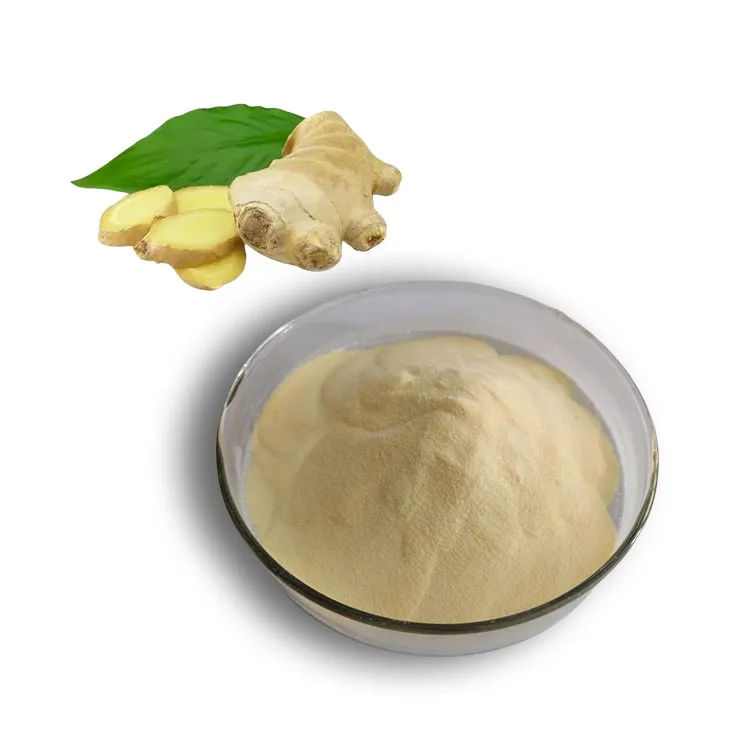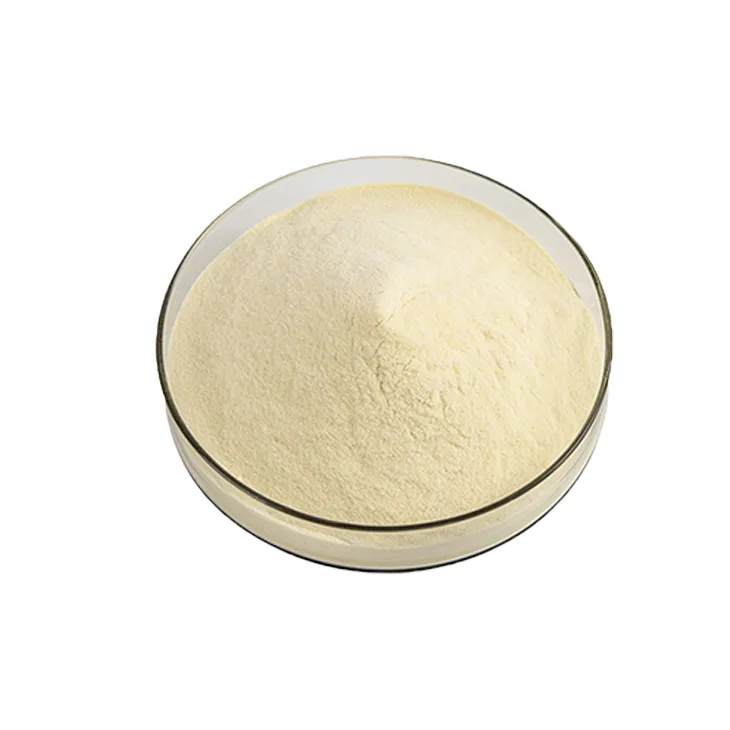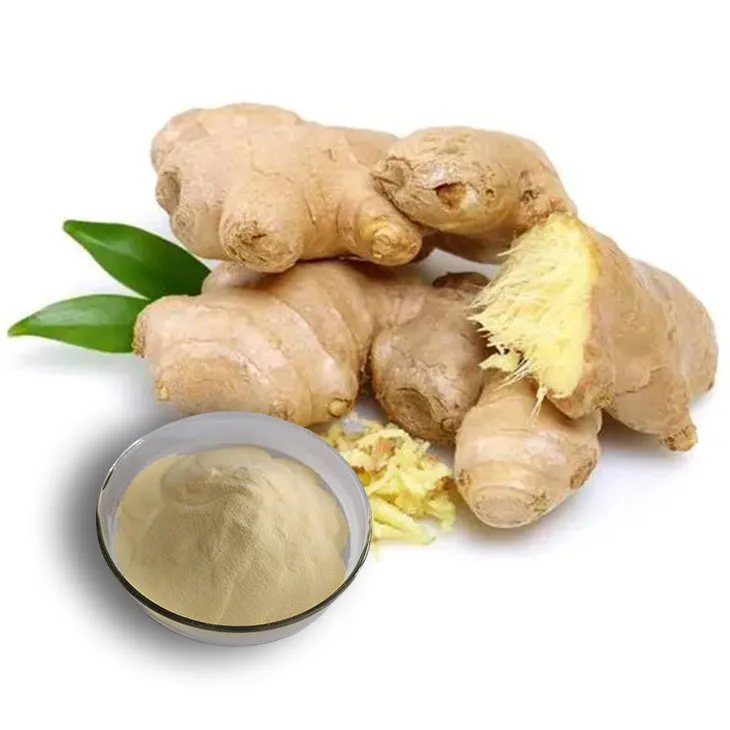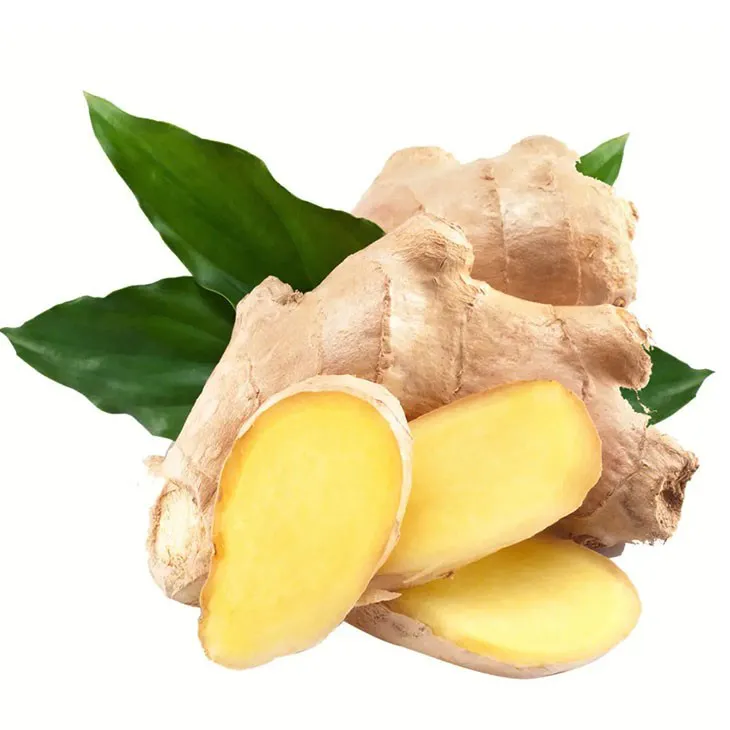- 0086-571-85302990
- sales@greenskybio.com
The Best Herbs for Treating Anxiety and Insomnia: Ginger Extract
2024-11-12

Introduction
Anxiety and insomnia are two of the most common health issues in modern society. With the increasing awareness of the side effects of pharmaceutical drugs, more and more people are turning to natural remedies. Ginger Extract has emerged as a potential solution for these problems. It has a long history of use in traditional medicine for various ailments, and recent research has shed light on its effectiveness in treating anxiety and insomnia.

Properties of Ginger Extract
Anti - Inflammatory Properties
One of the key properties of Ginger Extract is its anti - inflammatory effect. Chronic inflammation in the body has been linked to a variety of health problems, including anxiety and sleep disorders. Ginger contains bioactive compounds such as gingerols and shogaols, which have been shown to reduce inflammation. These compounds work by inhibiting the production of inflammatory cytokines and enzymes. For example, in vitro studies have demonstrated that ginger extract can suppress the activation of nuclear factor - kappa B (NF - κB), a key regulator of inflammation. By reducing inflammation, ginger extract may help to relieve the underlying physiological stress that can contribute to anxiety and insomnia.
Antioxidant Features
Ginger extract is also rich in antioxidants. Antioxidants play a crucial role in protecting the body from oxidative stress, which is caused by an imbalance between the production of reactive oxygen species (ROS) and the body's antioxidant defense mechanisms. Oxidative stress has been implicated in the development of neurodegenerative diseases, mood disorders, and sleep disturbances. Ginger's antioxidants, such as flavonoids and phenolic compounds, scavenge free radicals and prevent cellular damage. This antioxidant activity may contribute to its beneficial effects on anxiety and insomnia by maintaining the integrity of the nervous system and promoting healthy neurotransmitter function.

Effect on Neurotransmitters
Serotonin Regulation
Serotonin is a neurotransmitter that plays a vital role in mood regulation, sleep, and appetite. Low levels of serotonin have been associated with anxiety and depression, as well as sleep problems. Ginger extract may influence serotonin levels in the brain. Some studies suggest that ginger can increase the availability of tryptophan, the precursor to serotonin. By enhancing tryptophan uptake and conversion to serotonin, ginger extract may help to improve mood and promote better sleep. Additionally, ginger may also interact with serotonin receptors, modulating their activity to produce a calming effect.
GABAergic Activity
Gamma - aminobutyric acid (GABA) is the main inhibitory neurotransmitter in the central nervous system. It helps to reduce neuronal excitability and promotes relaxation. Dysfunction in the GABAergic system has been linked to anxiety disorders. Ginger extract has been shown to have GABAergic activity. It may enhance GABA - mediated neurotransmission, either by increasing GABA release or by potentiating the action of GABA at its receptors. This GABA - enhancing effect of ginger extract could contribute to its anxiolytic (anti - anxiety) and sleep - promoting properties.

Ways to Use Ginger Extract
Oral Consumption
- One of the simplest ways to consume ginger extract is in the form of capsules. These are widely available in health stores and online. Capsules provide a convenient and standardized dose of ginger extract, making it easy to incorporate into a daily routine.
- Another option is to drink ginger tea. To make ginger tea, grate fresh ginger root and steep it in hot water for 5 - 10 minutes. You can add honey or lemon for taste. Drinking ginger tea regularly can provide a gentle and natural way to benefit from ginger's properties.
- Ginger tinctures are also available. A tincture is a concentrated liquid extract that can be taken sublingually (under the tongue) or added to water or juice. Tinctures are often more potent than teas or capsules and can be a good option for those who want a stronger dose of ginger extract.
Topical Application
While less common for treating anxiety and insomnia, topical application of ginger extract can also have some benefits. Ginger - based creams or oils can be applied to the skin for a warming and relaxing effect. This may be particularly useful for relieving muscle tension, which can sometimes be associated with anxiety. However, it's important to note that the effectiveness of topical application for treating internal conditions such as anxiety and insomnia is still being studied, and it should not be used as a sole treatment method.

Why Ginger Extract is a Top Choice in Natural Remedies
Availability and Affordability
Ginger is widely available around the world. It is a common ingredient in cooking and can be easily purchased in grocery stores. Ginger extract products, such as capsules and tinctures, are also relatively affordable compared to many other natural remedies and pharmaceutical drugs. This makes it accessible to a large number of people who are seeking natural solutions for anxiety and insomnia.
Minimal Side Effects
Compared to pharmaceutical drugs used to treat anxiety and insomnia, ginger extract generally has minimal side effects. In most cases, when consumed in normal amounts, ginger is well - tolerated by the body. However, some people may experience mild gastrointestinal discomfort, such as heartburn or indigestion, especially if they consume large amounts of ginger or have a sensitive stomach. Overall, the risk of serious side effects is very low, making ginger extract a relatively safe option for long - term use.
Complementary to Other Therapies
Ginger extract can be used in combination with other therapies for anxiety and insomnia. For example, it can be used alongside relaxation techniques such as meditation or yoga. It can also be combined with other natural remedies, such as valerian root or chamomile, to enhance its effectiveness. Additionally, ginger extract may be used as an adjunct to conventional medical treatment, under the guidance of a healthcare provider, for those who are already taking medications for anxiety or sleep disorders.
Conclusion
In conclusion, ginger extract shows great promise as a natural remedy for anxiety and insomnia. Its anti - inflammatory and antioxidant properties, along with its effects on neurotransmitters, make it a potentially effective treatment option. With its various ways of consumption and its advantages in terms of availability, affordability, and minimal side effects, it is emerging as a top choice in the field of natural remedies for these common health problems. However, more research is still needed to fully understand its mechanisms of action and to optimize its use in treating anxiety and insomnia. As always, it is important to consult a healthcare provider before starting any new treatment, especially if you have underlying health conditions or are taking other medications.
FAQ:
What are the anti - inflammatory properties of ginger extract?
Ginger extract contains bioactive compounds such as gingerols and shogaols. These compounds have been shown to possess anti - inflammatory properties. They can inhibit the production of inflammatory mediators like cytokines and prostaglandins in the body. By reducing inflammation, it may help in alleviating some of the physiological stressors that could contribute to anxiety and insomnia.
How does ginger extract influence neurotransmitters related to mood and sleep?
Ginger extract may interact with neurotransmitters such as serotonin and dopamine. Serotonin is involved in regulating mood, and dopamine is related to feelings of well - being. Ginger extract might enhance the availability or function of these neurotransmitters, which in turn could have a positive impact on mood and potentially help with sleep regulation as mood disorders are often associated with sleep problems.
What are the different ways to use ginger extract for anxiety and insomnia?
One way is to consume it as a tea. By steeping fresh ginger slices or ginger powder in hot water, you can make a ginger tea. Another option is to take ginger extract supplements, which are available in capsule or tincture form. Additionally, ginger can be added to food recipes, like in stir - fries or smoothies, for a more continuous intake if preferred.
Is ginger extract safe for long - term use in treating anxiety and insomnia?
In general, ginger is considered safe for most people when consumed in normal amounts. However, some people may experience side effects such as gastrointestinal discomfort, especially when taken in large quantities. Long - term use should be monitored, and it is advisable to consult a healthcare provider before starting any long - term regimen, especially if you have pre - existing medical conditions or are taking other medications.
How does ginger extract compare to other natural remedies for anxiety and insomnia?
Ginger extract has unique properties compared to other natural remedies. For example, unlike some herbal remedies that may have a sedative effect mainly, ginger extract's approach seems to be more through its anti - inflammatory and neurotransmitter - modulating effects. It may offer a more comprehensive solution as it addresses multiple aspects related to anxiety and insomnia, rather than just focusing on relaxation or sleep induction alone.
Related literature
- The Effects of Ginger on Inflammation: A Review"
- "Ginger and its Impact on Neurotransmitter Function"
- "Natural Remedies for Anxiety and Insomnia: A Comparative Study with Ginger"
- ▶ Hesperidin
- ▶ citrus bioflavonoids
- ▶ plant extract
- ▶ lycopene
- ▶ Diosmin
- ▶ Grape seed extract
- ▶ Sea buckthorn Juice Powder
- ▶ Beetroot powder
- ▶ Hops Extract
- ▶ Artichoke Extract
- ▶ Reishi mushroom extract
- ▶ Astaxanthin
- ▶ Green Tea Extract
- ▶ Curcumin Extract
- ▶ Horse Chestnut Extract
- ▶ Other Problems
- ▶ Boswellia Serrata Extract
- ▶ Resveratrol Extract
- ▶ Marigold Extract
- ▶ Grape Leaf Extract
- ▶ blog3
- ▶ Aminolevulinic acid
- ▶ Cranberry Extract
- ▶ Red Yeast Rice
- ▶ Red Wine Extract
-
Dan Shen Root Extract/Salvia Root Extract
2024-11-12
-
Echinacea Extract
2024-11-12
-
Tinospora cordifolia extract
2024-11-12
-
Beetroot juice Powder
2024-11-12
-
Scutellaria Extract
2024-11-12
-
Bayberry Extract
2024-11-12
-
Lotus leaf extract
2024-11-12
-
Saffron Extract Powder
2024-11-12
-
Dandelion Leaf Extract
2024-11-12
-
Curcuma Longa Extract
2024-11-12





















